I worry about my family’s safety in India – they face violence, arrest and death for defending their livelihoods
Every day my mother and I attempt to contact my relatives to make sure they are still alive. Each night she sits in tears and I wonder if the government will listen
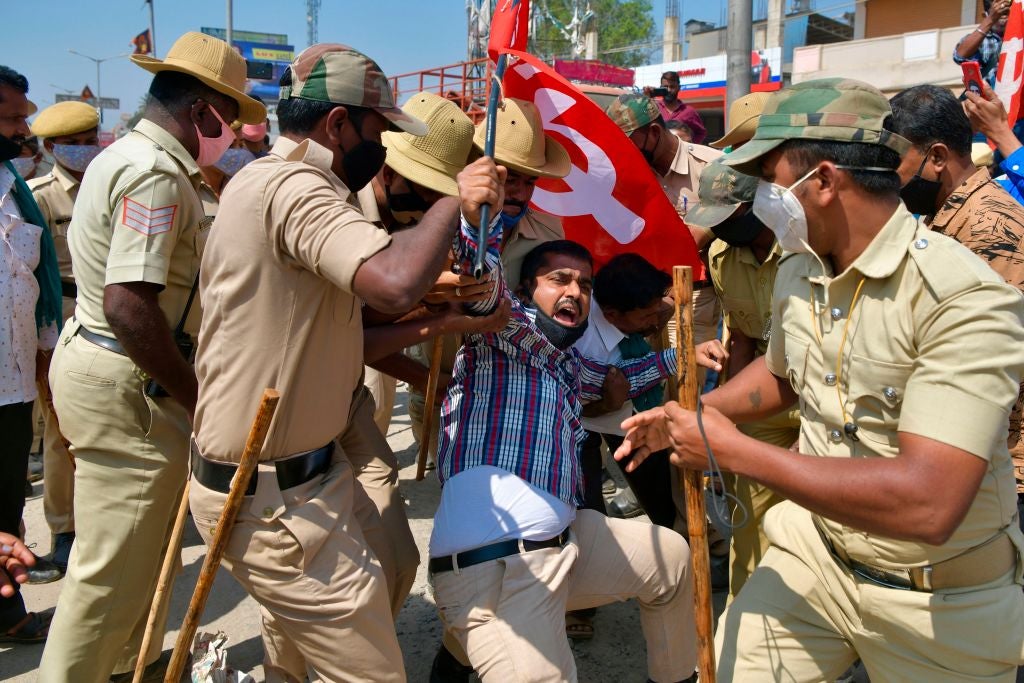
Every evening I hear my 80-year-old mother crying as she desperately tries to contact our family back in India. Phone lines go dead, emails remain unanswered, a communication blackout leaves us fraught with worry until a solitary brief message arrives: “We’re okay. For now”. I turn to Twitter for news but accounts have been shut down at the request of the Indian government.
We turn on the Indian TV channels in our UK home and there are reports of journalists being detained and tortured. We see a statement from the Press Club of India condemning the actions of the government and its attempts to silence media channels that dare report what is going. Meanwhile, the state-controlled media has gone into overdrive spreading fake news and outright lies to stoke communal violence.
This is daily life for so many British Indians as we frantically try to keep track of our families on the frontline of protests against the farming laws implemented by the government.
India’s new laws will allow big corporates to manage the agricultural economy and the farmers claim it will put them into debt, and further into poverty, driving them off their land with no recourse in the legal system for injustices by big business. The land they desperately fought for, that fed the nation as India struggled with famine in the aftermath of independence, will now literally be taken away from them.
The violence being used against the protesters of these laws is horrific. My family have sent me videos of old men being battered with iron rods, women and children being trampled by tractors, and bodies left lifeless in the streets.
I have known my cousin Bahadur all my life. He travelled to Delhi last month – leaving behind his wife, son and grandchildren – to peacefully protest and stand up for what he believes in. Each day his family wonders if they will ever see him again, or if there will be a knock at the door and they will all be taken away. I worry Bahadur will be arrested for defending their livelihoods. Standing up for democracy and an honest day’s work.
The India of today is a distant memory from that which my ancestors campaigned and fought for under British rule. Independence activist and former Indian prime minister Jawaharlal Nehru’s words in August 1947 crackled over my grandfather’s wireless: “At the stroke of the midnight hour, when the world sleeps, India will awake to life and freedom”. Fast forward to 2021, on Republic Day, the day India declared independence, Indians awoke to the sound of gunshots, brutal beatings, detention and death inflicted on its own citizens by its own government.
Prime Minister Narendra Damodardas Modi’s ultra-right-wing government has, through its links with the right-wing Rashtriya Swayamsevak Sangh (RSS) paramilitary organisation, implemented a number of controversial policies that have led to tensions with its own citizens and its neighbours China and Pakistan.
The gulf between rich and poor has never been greater and farmers claim these new agricultural ‘black laws’, which were rapidly passed without consultation or debate, using Covid-19 as an excuse, will push them further into poverty.
When Modi was chief minister of the Gujarat region he was banned from travelling to the EU, Britain and the US for his part in instigating vicious riots in 2012 that saw more than 1,000 Muslim men, women and children killed. Local reports account mothers dragged into the streets, raped, and murdered in front of their families.
Now Modi is the prime minister, the world remains silent as his government passes laws enabling the wealthy to control land and farms owned by families for generations. The government then enforces horrific brutality against anyone who defies it.
Every day I panic that their next victim could be one of my loved ones. It’s nothing short of suppression of democracy and economic terrorism against the people of India.
It is estimated that approximately 50 per cent of the population of India works in the agricultural sector. The farmers in their desperation, as the last stand to protect their families, are prepared to die for their cause. These protests are the largest of their kind in history, with one million farmers opposing a right-wing, fascist regime propped up by a clutch of billionaires.
On 26 January, Republic Day, a peaceful protest made its way through the streets of the capital, but soon erupted into carnage. Undercover officials infiltrated unions and broke out into violent protest, giving police reason to attack the crowds. My family told me they saw RSS thugs dressed in police uniforms carrying out horrific attacks of violence on the elderly, women and children. There are reportedly around 100 missing protesters, allegedly abducted.
After months of protests, the western world has mostly ignored the violence in India, despite the horrific images spreading across social media from witnesses in the epicentre of it. While overseas governments are distracted by the pandemic, human rights violations on a gargantuan scale are being allowed to continue.
Each night my mother and I attempt to make contact with our family, to make sure they are still alive. Each night she sits in tears and I wonder when – and if – our government will ever sit up, take notice and take action.
The writer is a 57-year-old chartered accountant from Berkshire. He was born and raised in Britain but visited India several times a year, until coronavirus hit

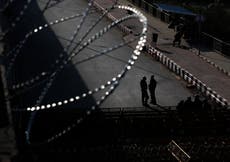
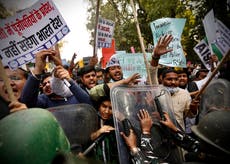
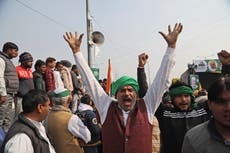
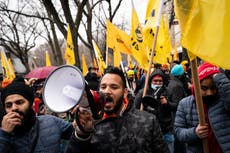
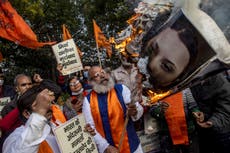
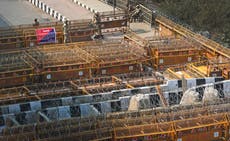
Join our commenting forum
Join thought-provoking conversations, follow other Independent readers and see their replies